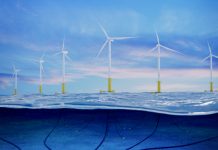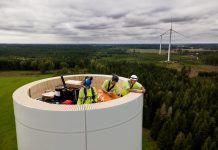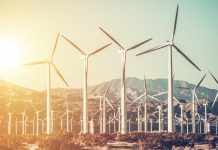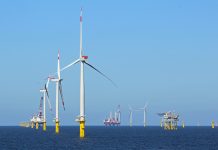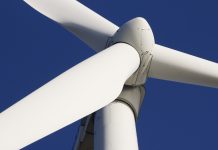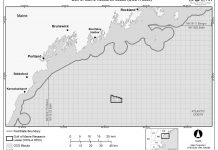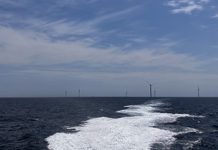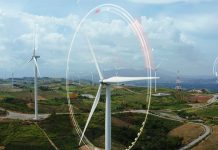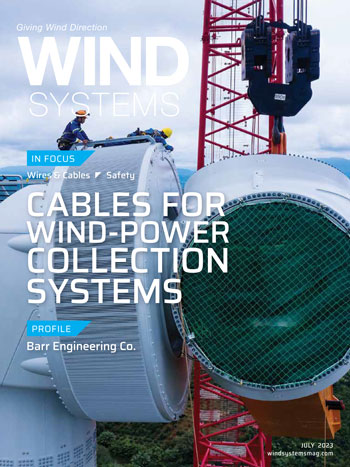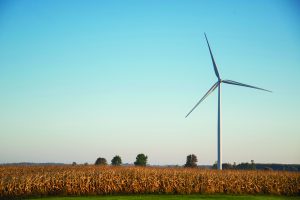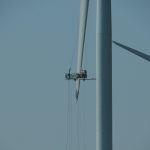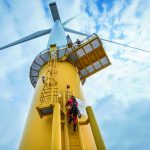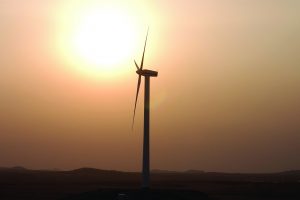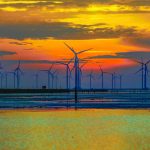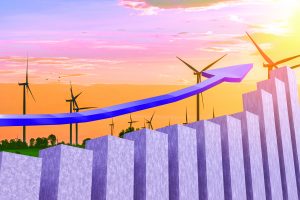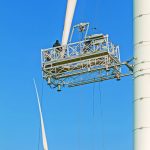When one thinks of U.S offshore wind, the state of Louisiana may not immediately spring to mind; however, the southern state is making some bold advancements in pushing Louisiana toward a net-zero carbon future.
At CLEANPOWER 2023 in New Orleans in May, Louisiana Gov. John Bel Edwards spoke to a large crowd about what his state is doing for the renewables sector and how those moves could resonate into other parts of the U.S.
Before introducing the governor, Mary Landrieu, a former Louisiana senator who is now with Van Ness Feldman, LLP, revealed Louisiana has more industry per capita than almost any other state and, as a result, will be difficult to decarbonize.
It’s a solid challenge, but Louisiana leadership is not backing down while looking at a range of possibilities to guide the state to success, according to Gov. Edwards.
“Today, there is a focus on bipartisanship,” he said. “And the truth is, those things really sum up what we’ve been trying to do here in Louisiana. And I believe that we have had success. Louisiana is an energy state. Period. And it’s exactly for that reason that we are taking an all-of-the-above approach to the energy transition.”
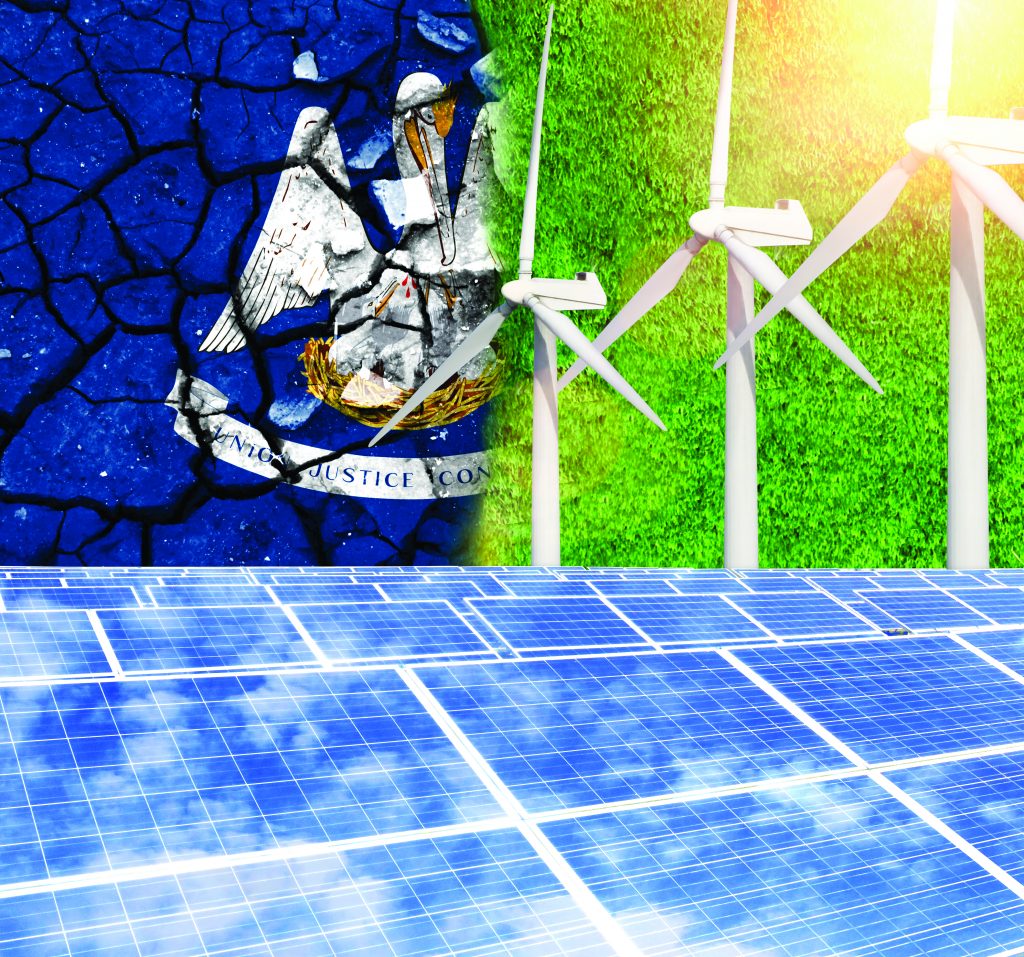
A Balancing Act
Balance is the key, according to Edwards, because energy transition isn’t something that will happen overnight, even for a state that has been producing energy for more than a century.
“We’re going to have to embrace the transition to the maximum extent possible but do it in a balanced way,” he said. “Not just balanced among all the various clean-energy initiatives, but balanced with the oil-and-gas industry as well. Because it is a transition that’s going to play out over a number of years and probably over several decades, so we embrace what’s happening.”
Despite the need for a balancing act among industries, Edwards was quick to point out that change is needed, and needed quickly.
“Here in Louisiana, the need is even more urgent,” he said. “And, quite frankly, it’s visible. Our state has again more adversity affected by climate change than any other state in the nation. As you probably are aware, storms are getting stronger. They’re also getting more frequent. And in fact, the two strongest storms to ever hit our state, hurricanes Lauren and Ida, actually happened in 2020 and 2021.”
Along with more frequent deadly storms comes sea-level rise and coastal erosion, which play a huge hand in destroying Louisiana’s ecosystems and well as its cultural traditions, according to Edwards.
“In Louisiana, unfortunately, we lose a football field’s worth of land every hour and a half,” he said. “So, climate change is real. In Louisiana, it’s not really an academic discussion. It affects other people. It’s not a mythical talking point you hear about on TV. It is at our door. And we recognize the need to take action not just to protect our eroding coast, but to address the root cause of the climate change. In particular, carbon emissions.”
CO2 Sources
Part of the challenge in Louisiana is the source of the carbon dioxide, according to Edwards.
“We’re a little different here,” he said. “We’re the only state in the nation where more than 50 percent of our CO2 emissions don’t come from power generation. They come from chemical manufacturing and refining.”
In order to tackle those massive emissions, Louisiana will need to electrify much of those industrial processes, according to Edwards.
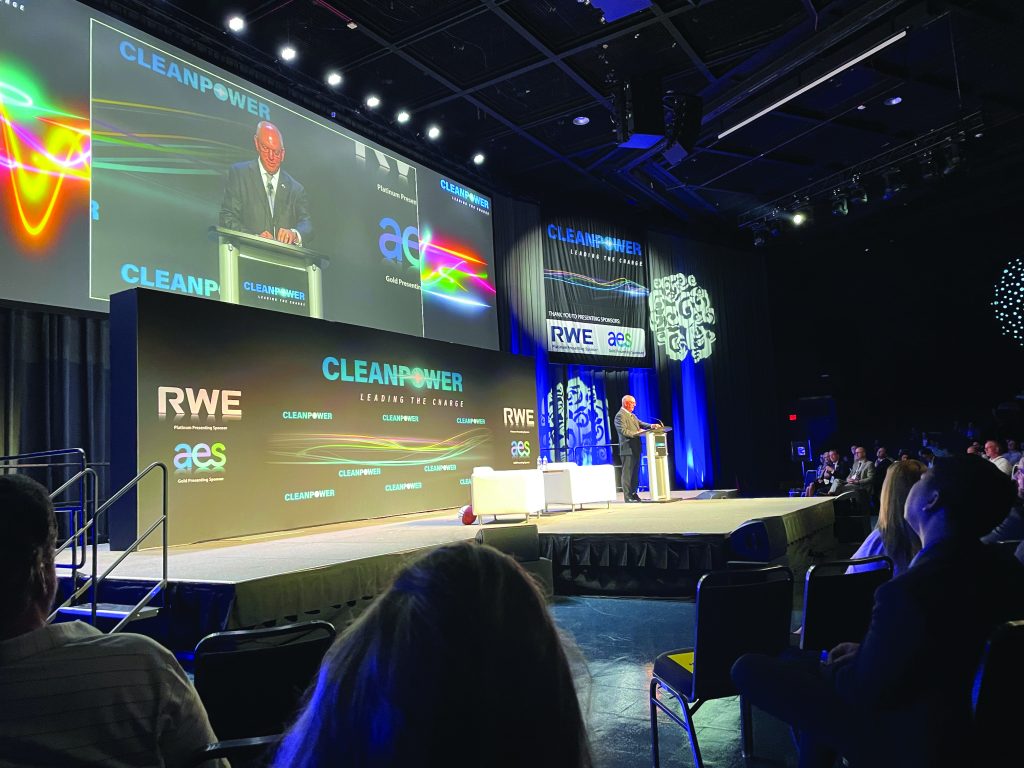
“As much as that electricity needs to be renewable as possible,” he said. “But this is also a climate issue. We’re landing tens of billions of dollars’ worth of investment projects precisely because we were saying yes when some of our neighbors are saying, ‘Not so fast.’ And in fact, the Houston Chronicle recently published a story about how Louisiana is claiming clean-energy projects while Texas resists. Everyone, including the most ardent climate deniers, understand economic development, investment, and job creation.”
Successfully implementing a net-zero-carbon plan means private companies will have to do their part as well, according to Edwards.
“It helps that the oil-and-gas companies doing business here in Louisiana, but also our chemical manufacturers, all have their own internal goals around decarbonizing the future,” he said. “And, of course, we brought government actors to the table, and we all worked together on that climate-action plan. But I really believe that there is a growing consensus in Louisiana climate change that we have to do something to address it, but also that, if we want to be an energy state, if we want to retain those jobs, if we want to retain that role, as important it is for the country and quite frankly, for the world, this is something we’re going to have to participate in and really lead the way in. And I think it’s working.”
Economic Benefits
Edwards said he was a bit surprised at the support for his state’s climate initiatives until he realized the economic factors involved.
“There has been a lot more support for our initiatives, quite frankly, than I thought when we set out,” he said. “There may be some people who aren’t so sure about whether climate change is real, or if it’s real, if human behavior is influencing that. But everybody understands economic development, investment, and job creation. And so, given the climate-investment decisions that have been made and other projects that have been announced, they’ve added to the tens of billions of dollars.”
And all that investment translates into thousands of construction jobs and tens of thousands of permanent jobs, according to Edwards.
“Everybody understands that,” he said. “That has really helped us. But we also know if clean energy isn’t available in Louisiana so the companies can’t meet their own internal goals here, those investment dollars are going to go somewhere else. We want them here in Louisiana because we have so many other advantages. We have the best workforce in the country, and of course I’m biased about that. For example, the density of pipelines in the state is unmatched anywhere else. And for all of those reasons, it really does work. Not to say it hasn’t been challenging. But we’ve been successful to a very large degree thus far because we’re doing it in a way that we position ourselves in the middle and not on either extreme.”
Challenging Issues
Permitting issues, as well as other concerns, not just in Louisiana, but in many states will be a factor in getting projects off the ground quickly, and Edwards said working with other governors is key to that success.
“Governors get along really well — y’all should know that,” he said. “And that happens irrespective of party. Because, quite frankly, we don’t have the ability to simply say, ‘Well, that’s somebody else’s job to make work.’ Every state only has one governor, and you get credit for things that you shouldn’t, and blamed for things you shouldn’t be blamed for because there’s only one person there to make it happen. So, we do get along, and the party labels really don’t matter that much.
We borrow from one another. Quite frankly, there’s a lot more collegiality there than you might think. We readily share experiences and what we think is the best practice or painful lesson learned with other governors.”
Addressing issues that can expedite or, in turn, delay a project are paramount, according to Edwards, which has let Edwards and other governors to discuss potential challenges with permitting with the White House.
“I think that there are permitting steps that can be taken simultaneously as opposed to sequentially,” he said. “There are so many things that we can do, especially around clean energy. Because the whole thing with energy is about the environment. We have a different issue here. We’re trying to restore our ecosystems, and we’re still having to go through inordinate delays because, in truth, our restoration efforts (are being treated) as if we’re trying to build some commercial facility.”
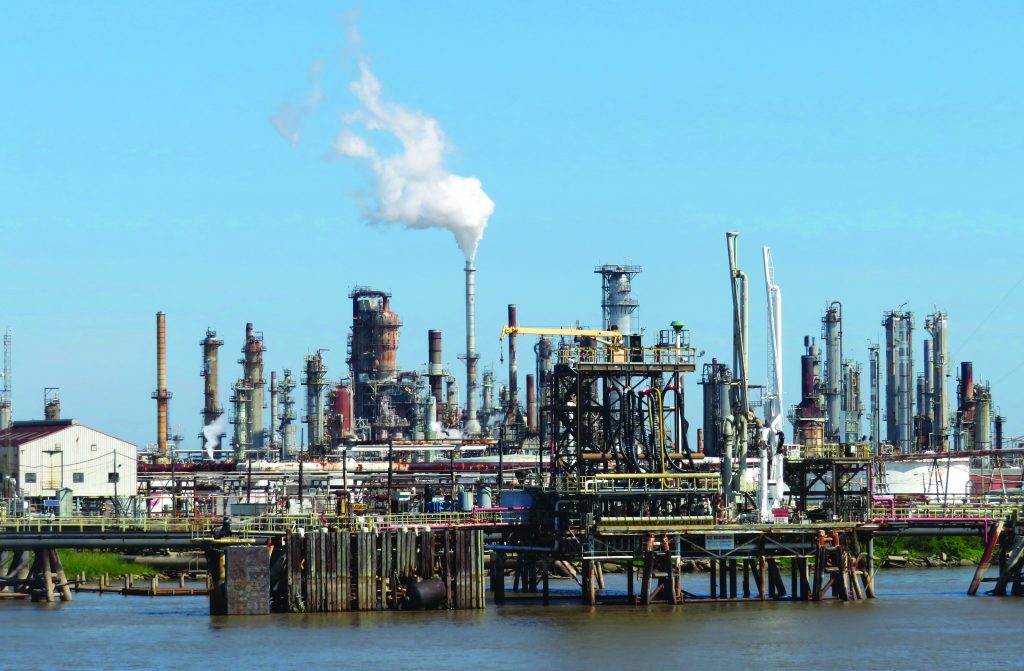
Louisiana Wind
Without permitting issues being quickly resolved, projects could stall, according to Edwards. “We’re going to talk, I hope, about wind energy,” he said. “If you put a wind platform in the Gulf and you don’t connect it to the grid, you’ve done absolutely nothing.”
As part of moving Louisiana to clean-energy alternatives, wind is a crucial part, according to Edwards. “Wind is critically important for us,” he said. “I just told you the single most important thing we have to do to realize our climate action plan goals is to electrify our industrial processes, and that has to be renewable electric to the maximum extent possible. Solar is certainly a part of that, but wind is, too, especially with us being a Gulf state.”
As part of that wind goal, Edwards said Louisiana has already passed statutes to set rules for how to invest in wind energy in state waters. Three companies already have expressed significant interest due to those initiatives.
That goes to show the symbiotic nature of the government and private sectors working together toward a common goal, according to Edwards.
“People think they always have to be in conflict — the traditional oil-and-gas industries vs. clean energy,” he said.
But recent history has shown that to not be the case at all, according to Edwards. For example, when the nation’s first offshore wind project was brought in, there were Louisiana companies participating in that, which bodes well for that same cooperation closer to home.
“Wind is critically important to us,” he said. “Having oil-and-gas and wind-energy companies operating in the same parts of our state at the same time really will facilitate the development of wind energy because they don’t have to bear all of those costs of the infrastructure — all the efforts — by themselves. So, it’s incredibly important, and we are very excited about the interest we are seeing in Louisiana in wind energy.”
Infrastructure in Place
That existing infrastructure from oil-and-gas, in terms of industries, is a natural fit for wind, according to Edwards.
“If you’ve been making vessels to install and service oil-and-gas platforms, with modifications, those vessels can install and service wind platforms,” he said. “We have some of the best vessel manufacturers anywhere in the world right here in Louisiana, so this is not just something that is theoretical.
I wish you could go to some of these shipyards in south Louisiana and see the vessels that they’re building right now and the hundreds and hundreds of skilled workers who are employed building those vessels. This is exciting to us, but it’s evidence on the ground that embracing the transition is right for Louisiana.”
A number of industries and companies are already helping make these goals a reality, as well as looking to future goals such as the creation of green hydrogen, according to Edwards, but more work will be needed — both now and in the future.
“Nobody wants to be cold and in the dark, and we’re asking people to make decisions today that — for this benefit today — the biggest benefit comes in the next generation,” he said. “The American people, I suspect, are not quite that generous and forward-looking, and so, we want their continued support for this transition — for clean power. We’re going to have to do this in a balanced approach and understand that it is a transition. That doesn’t mean that we don’t move as fast as we reasonably can, because there is a sense of urgency, too. But to try to get all of that right, I think is critically important.”



